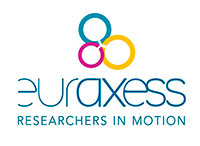Bolsa de PD em Arquitetura de Computadores
Post doctoral fellowship in Computer Architecture
Nº: 607
Área de conhecimento: Ciência da Computação
Field of knowledge: Computer science
Nº do processo FAPESP: 2013/08293-7
FAPESP process: 2013/08293-7
Título do projeto: CEPID Center for Computational and Engineering Sciences
Project title: Simulation Techniques and Simulation Synthesis
Área de atuação: Arquitetura de Computadores
Working area: Computer Architecture
Pesquisador responsável: Rodolfo Jardim de Azevedo
Principal investigator: Rodolfo Jardim de Azevedo
Unidade/Instituição: Instituto de Computação
Unit/Instituition: Instituto de Computação
Data limite para inscrições: 31/05/2014
Deadline for submissions: 2014-05-31
Publicado em: 22/04/2014
Publishing date: 2014-04-22
Localização: Instituto de Computação,,
Locale: Instituto de Computação,,
-
Resumo
Summary
Uma das principais características do Centro é a simulação de múltiplos modelos em múltiplas escalas de tempo/espaço em clusters de grande tamanho.
Esta pesquisa procurará novas formas para acelerar os programas e também inovações na geração de simuladores para instâncias específicas dos modelos.
Simuladores específicos já se provaram efetivos em áreas como Arquitetura de Computadores e Circuitos Digitais. Pretendemos utilizar estas técnicas em áreas como Física, Química e Engenharias.
Para mais detalhes, por favor consultar o resumo desta oportunidade na versão em inglês.
Mais informações sobre o CEPID Center for Computational and Engineering Sciences: http://cepid.fapesp.br/centro/13/.One of the major characteristics of this Center is the large scale simulation of multiples models, using computer clusters to speed up the process.
This researcher will focus on new techniques to better spread the code between machines and mostly to find innovative ways of generating custom simulators tied to one specific instance of the model.
Specific simulators have proven effective in areas like Computer Architecture and Digital Circuits, where previous results showed that the time to create the specific simulator is paid by the improvement in simulation speed. We intend to bring such technology to Chemistry, and Physics simulations, among others.
Discrete event simulators tend to impose high overhead as the price for their flexibility. Our goal is to use Compiled Simulators to improve Particle Simulation technique.
Compiled Simulators are custom build simulators tied to one specific instance of the data. By having embodied data in the source code, they allow the compiler to drastically improve the code performance (gains of over 100 times can be expected).
The drawback is that it will be necessary to have one specific simulator for each instance of the model. To solve this problem, compiled simulators need to be generated automatically, which will be the focus of this work.
The PD will work on general simulation techniques, integrating different areas. The proposed simulator technique will integrate:
(a) Speculative execution to hide communication latency, moving the simulation forward without waiting for data from other machines;
(b) Timing decoupling to improve timing granularity without imposing higher synchronization overhead;
(c) Embedded data into the simulation, to avoid executing code that will not generate relevant results, like parameters not used in equations of functions; and
(d) Optimistic cloud-based execution to use processing resources as they become available in a cluster or from remote sites.
We are looking for candidates with strong Computer Architecture background. If you are interested in this fellowship, please send a Letter of Interest and a Curriculum Vitae containing key achievements as an email attachment to rodolfo@ic.unicamp.br.
To learn more about the Center for Computational Engineering and Sciences: http://cepid.fapesp.br/en/centro/13/.
-
Enviar
Oportunidade - Oportunidades Abertas Open Opportunities
-
Fellowships Opportunities
